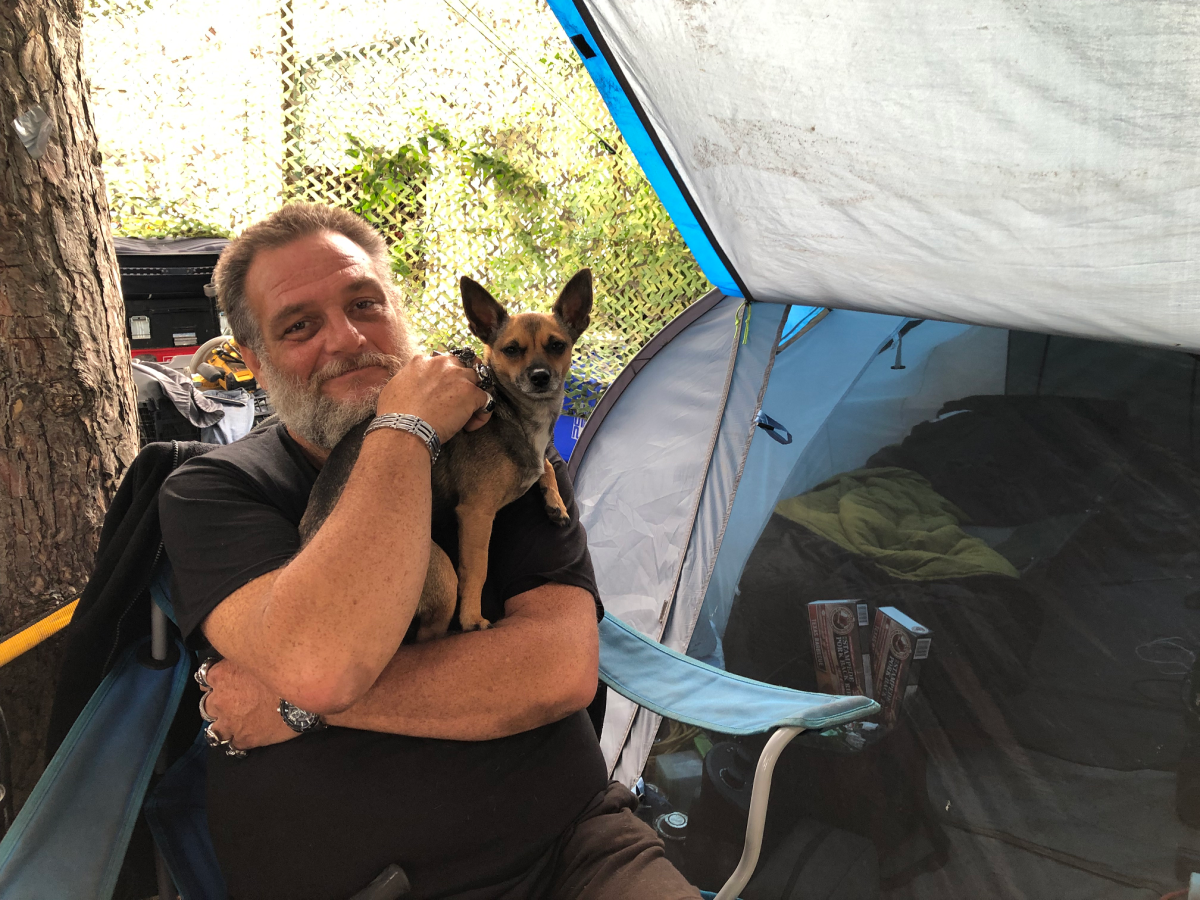Hamilton city councillors have voted to repeal a bylaw that allowed homeless encampments in public spaces for a two-week period, saying the protocol has been deemed “ineffective”.

During an emergency closed session council meeting on Monday, Ward 2’s Jason Farr introduced the motion to get rid of the bylaw, which came about last year because of a court injunction barring the removal of encampments.
The discussion was held in-camera but the 10-2 vote saw councillors Maureen Wilson and John Paul Danko as the only ones in opposition to Farr’s motion.
Voting in favour were councillors Farr, Sam Merulla, Brenda Johnson, Arlene VanderBeek, Brad Clark, Judi Partridge, Chad Collins, Tom Jackson, Maria Pearson, and Mayor Fred Eisenberger.
In an interview with Global News, Farr said the decision was made in light of increasingly unsafe conditions in encampments.
“We had an emergency meeting because most of us felt that we are in a state of emergency,” said Farr.
“It’s been cumulative, but we’ve had situations that we as a governing body municipality need to address … an explosion at a central park encampment, fires that have occurred, assaults that have occurred, and even the story that CHML ran a few weeks ago that resulted in the brazen daylight theft of a Wal-Mart truck started with gunshots at an encampment in Ward 5.”
The city’s encampment protocol was established last year after a group of community advocates obtained a Superior Court injunction that temporarily restricted the city’s ability to remove tents from public spaces.
- ‘Alarming trend’ of more international students claiming asylum: minister
- Justin Trudeau headed to UN Summit of the Future amid international instability
- Canadian government’s satellite deal has Tories calling for Elon Musk involvement
- Activists call for Boogie the monkey to be removed from Ontario roadside zoo
In a media release on Monday, the city said renewed regular enforcement will begin in three weeks, with encampments once again becoming illegal in public parks starting Aug. 30.
“While enforcement levels will change, the City of Hamilton remains committed to taking an individualized approach to housing by connecting those experiencing homelessness with the available community resources and supports, including the variety of options available through the City’s housing continuum,” said the release.
An emailed statement from Edward John, director of housing services for the city, said repealing the encampment protocol doesn’t mean they won’t keep trying to work with those living in encampments to find them permanent housing.
“I can confirm that as City staff have been applying the protocol over the past few months, we’ve encountered increasing challenges as a result of the need for housing staff to co-ordinate various partners and contractors on response efforts,” the statement from John reads.

Get daily National news
“Staff remain committed to their core role of engaging and connecting unsheltered individuals to housing and available services.”
A group of volunteers working to support encampment residents have written an open letter calling for an end to encampment evictions in response to the city’s decision.
“Encampment evictions are a public health crisis,” said Vic Wojciechowska of the Hamilton Encampment Support Network in a video posted to Twitter.
“Many people living on ODSP and Ontario Works cannot afford to live in the city because social assistance rates are fixed below the poverty line, creating the current conditions we are witnessing, where most encampment residents are disabled.”
Gord Smyth is one of those disabled encampment residents.
For several weeks now, Smyth has been living in a tent in Central Park next to the fire station on Bay Street North along with his dog Daisy and a few other people who cannot afford the cost of market rent in Hamilton.
Prior to living in a tent, the 54-year-old — who has heart disease, diabetes, chronic obstructive pulmonary disease and extreme pain from an accident about five years ago — had been renting a unit for $525 a month until he was evicted.
Through ODSP, Smyth said he would get about $1,255 per month — which included just under $500 for rent — but ever since he was evicted, he receives even less on a monthly basis.
“Because I no longer have an apartment, I no longer receive that $497 a month,” Smyth previously told Global News. “I now get to survive with $758 a month.”
As of July, the waitlist for affordable housing in Hamilton stands at 5,400 households, with an average wait of three to five years for qualified applicants.
Smyth said he’s not optimistic that he’ll be given a permanent place to leave if he has to leave the park.
“If you want to take my $497 a month that I get for shelter and apply it to let me stay here in peace and just rot away without all the stress of wondering what’s going to happen tomorrow, take it,” said Smyth, becoming visibly emotional while speaking.
“I don’t want to move. I’m tired of moving, I’m sick of moving. I’m going to die moving. And it’s what the city wants. They want us all gone. I’m just an old man trying to survive.”
Before the repealing of the encampment protocol takes effect at the end of the month, the city said it will “continue to offer supports and alternatives to those living in encampments”.
Farr said about 440 homeless residents and families have been housed throughout the pandemic and he said those efforts continue.
“There are opportunities for everyone and we’re not starting outreach all of a sudden. It’s something we do every day and that will continue to do tomorrow and throughout the next three weeks, and I would encourage those who are sleeping rough to have those conversations because we are always presenting safer, more humane options.”
He added that the city was caught “flat-footed” following the litigation last year but said this time, councillors have directed the city’s legal team to defend their position.
The Hamilton Social Medicine Response Team (HAMSMaRT) and Keeping Six, advocacy groups who were behind last year’s court injunction, issued a media release on Tuesday saying they were “floored” by the decision.
“HAMSMaRT and Keeping Six, along with our co-applicants on last year’s injunction, negotiated this protocol in good faith with the understanding that although it was far from perfect in our eyes, it was a compromise that provided better protection to encampment residents and avoided a drawn out and potentially costly court battle with the city,” the groups wrote.
“For the city to walk away from this negotiated settlement unilaterally, and without even the courtesy of any communication with us, or any apparent consultation with those on the front lines, is deeply anti-democratic and repressive.”
They added that they are currently consulting with their own legal representatives about next steps.



_848x480_1397405763961.jpg?h=360&w=540&crop=1&quality=70&strip=all)



Comments